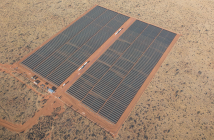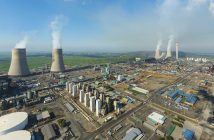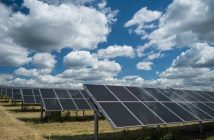- As required by law, Eskom submitted its revenue application to the National Energy Regulator of South Africa (NERSA) on 2 June 2021.
- The application is for the period 1 April 2022 to 31 March 2025.
- The revenue application was made in accordance with the prevailing methodology, as previously consulted on, and approved by NERSA.
- According to Eskom, this methodology remains valid, until replaced by an alternate.
NERSA, at its Energy Regulator meeting, on 30 September 2021, rejected the Eskom MYPD 5 revenue application. NERSA intends to make an interim price determination for the FY 2023 based on a new price methodology, which is as yet unknown.
NERSA has embarked on a consultation process to gather comments from stakeholders to assist in the development of the new methodology that will ensure sustainable electricity prices. In this regard, NERSA has published a consultation paper on principles to be used when determining electricity prices for the oncoming tariff setting period. Read more
The new price determination approach will also take into consideration the rapid transformation of South Africa’s electricity sector, respond to the transformation of the Electricity Industry and associated energy security concerns, rising electricity prices as well as the increase in self and private sector electricity generation.
Once the consultation process is is finalised, utilities will be required to submit applications to NERSA for analysis to be undertaken before price increase decisions are made.
The requirement of the Electricity Regulation Act, Sect 14(2) is that a methodology to be used for the determination of rates and tariffs which must be imposed by licensees. Similarly, Sect 6(2) of the Distribution licence approved by NERSA on 23 July 2021, states that the Licensee shall comply with the revenue determination methodology provided by NERSA in determining its prices and tariffs. In its consultation paper of September 2021, NERSA confirms that the interim application for FY 2023 will be based on a revised methodology yet to be finalised.
In order for Eskom to ensure that it submits a compliant application, it must ensure that this methodology forms the basis of any application made. Any methodology needs to be consulted on by NERSA before finalisation.
Even if the new methodology is developed in time, Eskom will not be able to make a new price application for implementation by 1 April 2022 until full statutory compliance, due process and legislative consultation have been complied with. The required timelines for approving a new methodology, and for Eskom submitting a new application in accordance with the new methodology are exceptionally short, and creates the real risk that new tariff will not be in place by 1 April 2022.
Eskom also cannot, as suggested in the NERSA communication, submit an application on a methodology which is as yet unknown. A non-compliant application and subsequent determination will leave the resulting tariff decision open to legal challenge, thereby creating substantial risk not only for Eskom, but also for municipalities and other buyers of electricity.
NERSA’s rejection of Eskom’s MYPD 5 application, has created a regulatory vacuum for the electricity supply industry in South Africa. Eskom is accordingly considering how to proceed, and is taking advice on its position following the NERSA decision.
Author: Bryan Groenendaal











